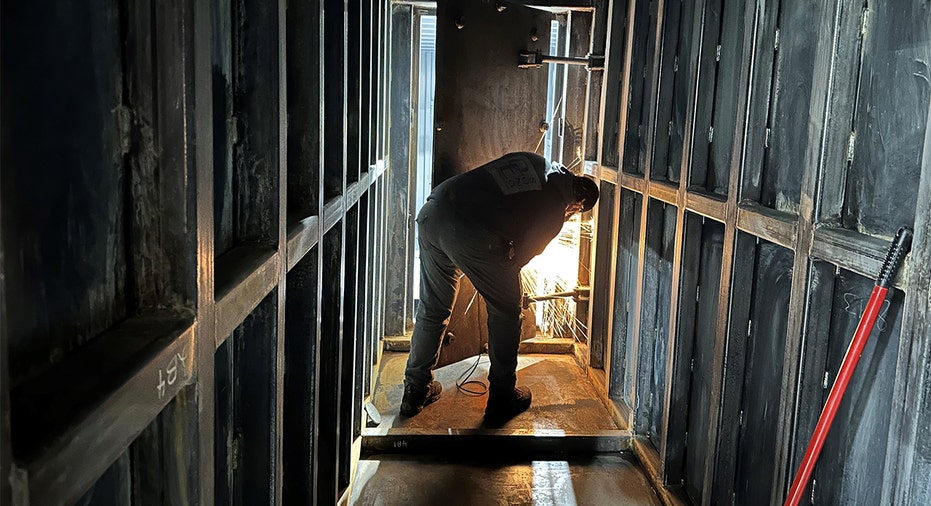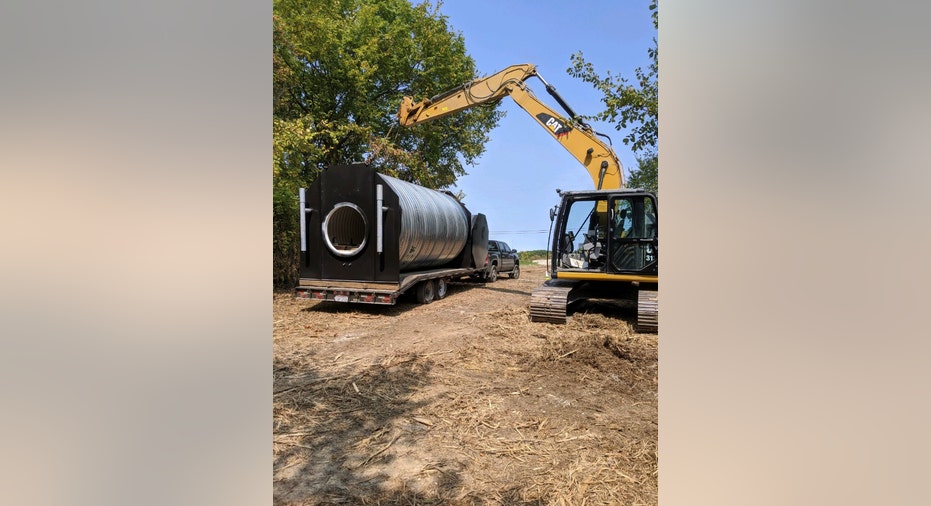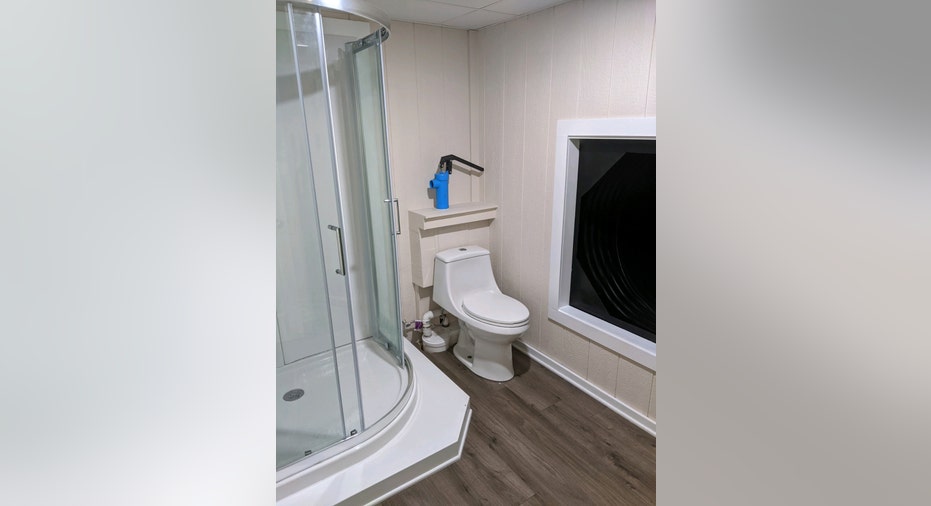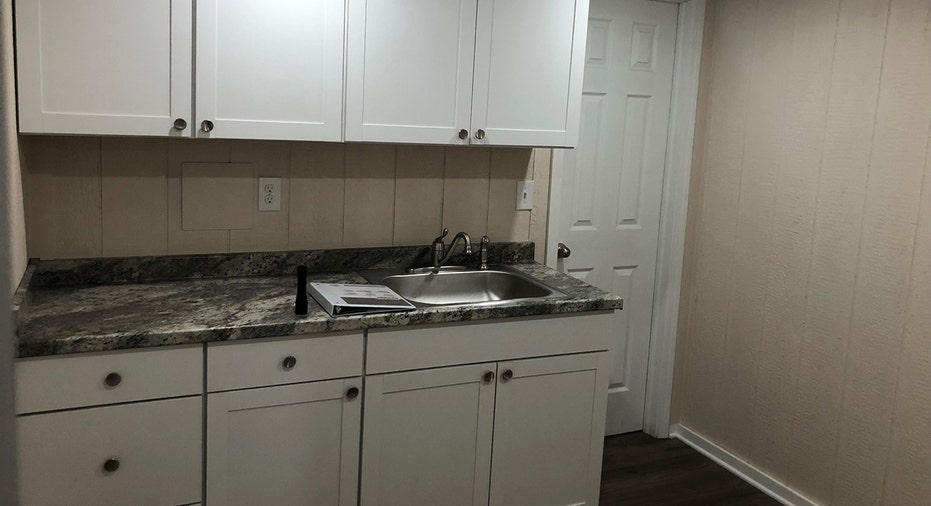Bunkers aren't just for billionaires: Inside underground spaces for average Americans
USA Bunker Company sells underground fallout shelters starting at $21K
Doomsday bunker penthouse hits the market at $2.4 million
FOX Business' ‘Mansion Global’ host Kacie McDonnell discusses the latest episode, which covers a doomsday bunker that was converted into a luxury residence on ‘Varney & Co.’
If you’re trying to prepare for a devastating natural disaster, potential nuclear warfare or looming doomsday, it turns out you don’t have to be a billionaire (or millionaire) to do so.
"Our primary customers are anywhere from middle class to pretty wealthy people," USA Bunker Company founder and president Todd Stump told FOX News Digital. "They're pretty normal, working class, down-to-earth people that just want some extra layers of protection."
Based in Akron, Ohio, and building since 2012, Stump’s veteran-owned company offers installation of "simple" underground bunkers starting at $21,000, while also working on projects where "the sky’s the limit" in terms of cost.
"Our most expensive that we've done today is probably a couple hundred thousand [dollars]," Stump noted. "And I would say an average is anywhere from $90,000 to $120,000."
JEFF BEZOS BUYS $68 MILLION MANSION IN MIAMI'S EXCLUSIVE ‘BILLIONAIRE BUNKER’
Stump admits that interest and demand for underground bunkers has risen "more and more" in the past few years. Underground shelters have also made national headlines recently as Facebook founder and CEO Mark Zuckerberg is reportedly building an extravagant bunker at his nearly $200 million Hawaii home.
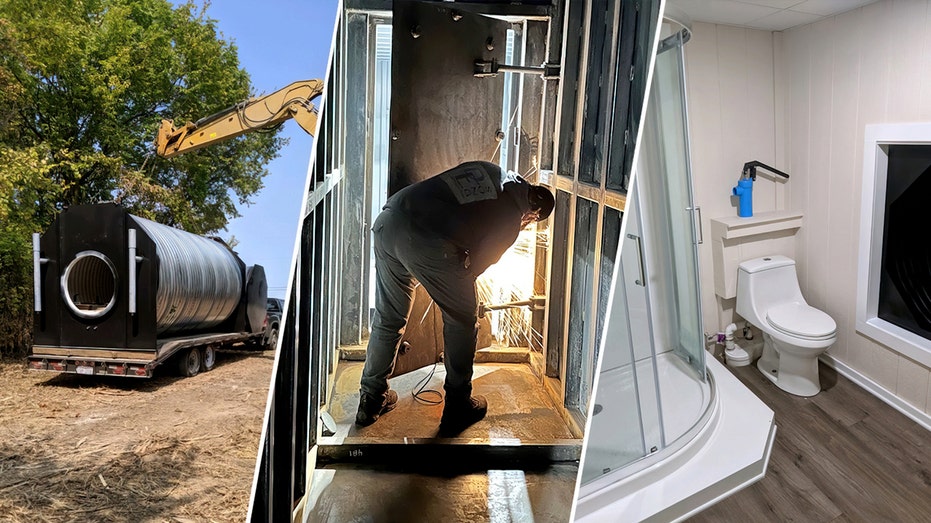
Veteran-owned and operated USA Bunker Company offers shelters ranging from $21,000 to the upper hundreds of thousands. (Fox News)
Developer sources close to project plans told Wired that the bunker will span 5,000 square feet and be located underground between the property’s two main buildings.
Manufacturers aren’t afraid to push boundaries, according to Stump, who recalled a recent "challenging" project located in a Western mountain range.
"We're talking 10,000 feet up, completely off-grid, steep mountain roads, limited working space. And we put a pretty big-sized bunker up there and, pretty nerve wracking, some of the trucks almost couldn't get to the site," the veteran and former police officer said.
'Mansion Global:' Luxury doomsday preppers
Join host Kacie McDonnell on 'Mansion Global' in an undisclosed location in Kansas, where a nuclear missile silo has been converted into a luxury doomsday preparedness community.
The most basic bunkers come equipped with what someone needs for life support, while more luxurious shelters can include features like a swimming pool. An average shelter is built for a family of four, and can sustain them "for months" at a time, Stump pointed out.
While supplies are finite, there’s extra storage space below the bunker itself for food and other necessities. Individual bunkers can also be connected to create larger underground systems for bigger groups of people.
"It's all about how they set it up. And, of course, how much money they're spending to put into it. So stocking it with food, water, having the ability to manage and control your waste, and just your mental sanity," Stump explained.
USA Bunker Company's underground shelters start at $21,000.
"I don't think a lot of people, customers I talk to really take the mental aspect into it. Anybody can say, ‘Yeah, I'll be down there for three weeks,’" he continued, "but if you've never done that before, you don't know what to expect."
Some of USA Bunker Company’s clients have included government and White House officials, who have lost confidence in the government’s structure. Other customers are looking for protection from natural disasters like tornadoes or accidents such as toxic train derailments, as seen last year in East Palestine – but the majority of clients reportedly have concerns about nuclear warfare.
"Ninety-five percent, I would say, want it for nuclear war, like World War III," Stump said. "Just everything pretty much being destroyed."
GET FOX BUSINESS ON THE GO BY CLICKING HERE
Charles Payne: This is the closest the Doomsday clock has ever been
FOX Business host Charles Payne reacts to the newest doom and gloom on 'Making Money.'
The day when bunkers go mainstream isn’t too far away, the USA Bunker company founder argued, intending to move away from the "doom and gloom" stigma associated with fallout shelters.
"I think that the U.S. is just way behind in that aspect and the reality of disasters happening," Stump said. "We put bunkers in out west in fire areas that work as fire shelters, so people can run and go there and ride out the storm of the fire going through. So if you take away the looming gloom of the ‘crazy prepper,’ that's what people associate bunkers [with], I think you can you can normalize it a lot better. And that's what we're going to be working on."























